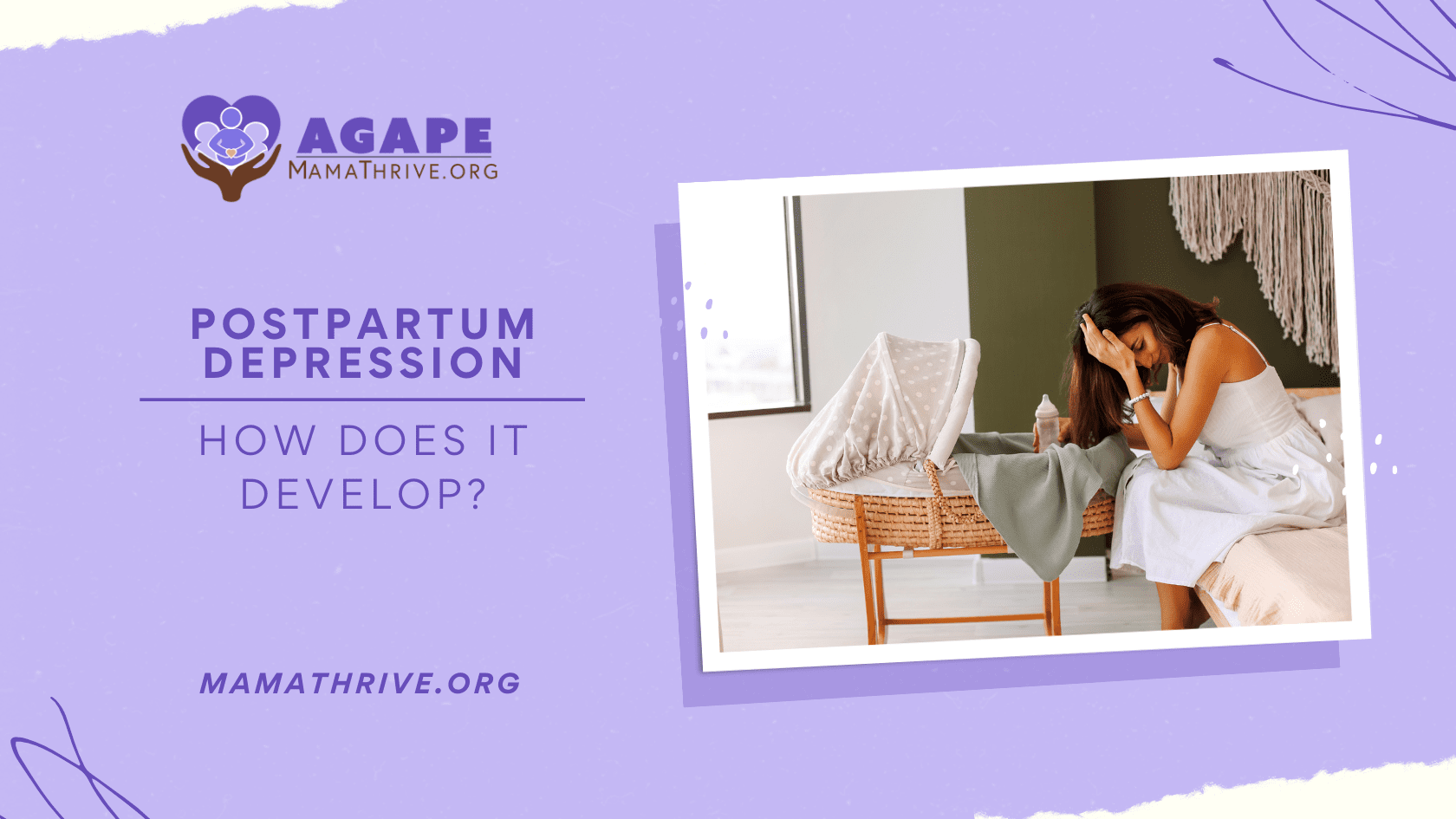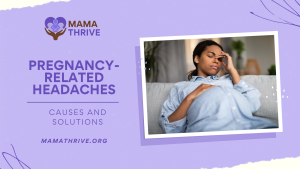Postpartum depression (PPD) is a serious mental health condition that affects many women after childbirth. It is important to understand how postpartum depression develops, as this knowledge can help identify those at risk and provide effective support and interventions. In this article, we will explore how postpartum depression develops, offering valuable insights into this condition that affects countless new mothers.
Learn more about postpartum depression.
Factors that Affect Postpartum Depression Development
Hormonal Changes and Imbalance
During pregnancy, a woman’s body undergoes significant hormonal changes. After giving birth, the sudden drop in estrogen and progesterone levels can impact neurotransmitters in the brain, leading to mood disturbances. These hormonal fluctuations are thought to contribute to the development of postpartum depression.
Hormonal changes and imbalances that occur during the postpartum period have been identified as potential contributors to the development of postpartum depression. Research studies have shed light on the complex relationship between hormones and mood regulation during this time.
One study by Bloch et al. (2003) examined the role of hormonal fluctuations in the onset of postpartum depression. The findings suggested that abrupt decreases in estrogen and progesterone levels after childbirth can impact the functioning of neurotransmitters in the brain, particularly those involved in mood regulation. This disruption in neurochemical balance may contribute to the development of depressive symptoms.
Emotional and Physical Stress

The postpartum period is often accompanied by a host of emotional and physical stressors. The demands of caring for a newborn, sleep deprivation, physical recovery from childbirth, and adjusting to new routines can overwhelm new mothers, increasing their vulnerability to depression.
A study by Yim et al. (2015) examined the relationship between stress and postpartum depression. The findings revealed that high levels of stress, including emotional and physical stress, significantly increased the risk of developing postpartum depression. The study emphasized the importance of addressing stress management strategies to prevent or alleviate postpartum depression symptoms.
Recognizing the role of emotional and physical stress on how postpartum depression develops is crucial for providing appropriate support and interventions. Implementing stress management techniques, promoting self-care practices, encouraging adequate rest, and providing practical assistance can help alleviate the burden of stress and reduce the risk of postpartum depression.
Personal or Family History of Mental Health Conditions
Women with a personal or family history of depression, anxiety, or other mental health disorders are at a higher risk of developing postpartum depression. These pre-existing conditions, coupled with the added stressors of pregnancy and childbirth, can significantly impact how postpartum depression develops. Credible research studies have provided insights into the impact of this factor on postpartum mental health.
A study by Robertson et al. (2004) examined the association between personal and family psychiatric history and postpartum depression. The findings indicated that women with a history of depression or other mental health disorders were at a higher risk of experiencing postpartum depression compared to those without such history. The study emphasized the importance of recognizing individual vulnerability factors in identifying women who may require additional support during the postpartum period.
Another study by Meltzer-Brody et al. (2013) investigated the influence of family psychiatric history on postpartum depression. The research revealed that women with a family history of depression had an increased risk of developing postpartum depression. The study highlighted the interplay of genetic and environmental factors in predisposing women to this condition.
Lack of Social Support

A lack of social support has been identified as a significant risk factor for the development of postpartum depression. Numerous research studies have shed light on the detrimental effects of limited social support during the postpartum period.
A study conducted by Dennis and McQueen (2009) examined the relationship between social support and postpartum depression. The findings revealed that women with inadequate social support were at a higher risk of developing postpartum depression compared to those with strong social support networks. The study emphasized the importance of emotional, informational, and practical support from partners, family members, and friends in mitigating the risk of postpartum depression.
Furthermore, a research study by Guintivano et al. (2018) explored the impact of social support on postpartum depression vulnerability. The study highlighted that women who perceived themselves to have lower levels of social support were more likely to experience postpartum depression symptoms. It emphasized the need for interventions that focus on enhancing social support systems to prevent and alleviate postpartum depression.
The absence of social support can lead to increased feelings of isolation, loneliness, and stress, which can contribute to the development of postpartum depression. New mothers who lack a supportive network may find it challenging to cope with the demands of caring for a newborn and adjusting to their new roles. The absence of practical assistance and emotional understanding can amplify feelings of overwhelm and exacerbate depressive symptoms.
Relationship Difficulties
Relationship difficulties within the context of parenthood can significantly impact a woman’s risk of developing postpartum depression. The challenges and changes that come with becoming parents can strain relationships, leading to increased stress and emotional turmoil.
Relationship conflicts or strains between partners can be a significant source of stress during the postpartum period. The added responsibilities, sleep deprivation, and adjustment to new roles can create tension and disagreements. Ongoing conflict or unresolved issues can erode the emotional well-being of new mothers, contributing to feelings of sadness, anxiety, and overwhelm. When relationship dynamics are strained, it can disrupt the support and understanding that are crucial during this vulnerable time.
Postpartum Depression Prevention
Preventing and effectively treating postpartum depression is crucial for the well-being of both the mother and child. Strategies include comprehensive education and awareness, prenatal and postnatal support programs, fostering strong social support networks, psychotherapy, and counseling (such as cognitive-behavioral therapy), and, when necessary, medication under professional guidance. By implementing these approaches, women can receive the necessary support, learn coping mechanisms, and manage their symptoms effectively.
Learn more about how to cope with postpartum depression.
Conclusion
Postpartum depression is a complex and multifaceted condition that can have a significant impact on the well-being of new mothers. Understanding the various causes and risk factors associated with its development is crucial for early detection and effective intervention. By promoting awareness, providing support networks, and implementing appropriate treatment strategies, we can help new mothers navigate this challenging period with greater resilience and well-being.





